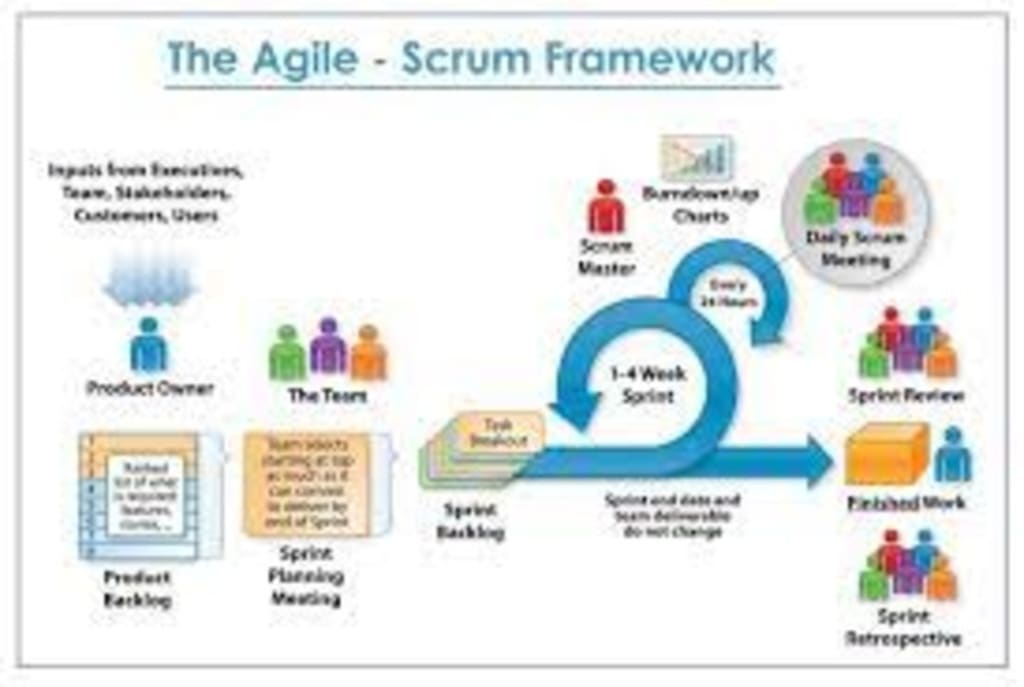The Value of Agile Software Development in the Web Development Industry
Find it out

Introduction:
In the dynamic world of web development, where requirements can change rapidly and customer satisfaction is paramount, a flexible and efficient development approach is essential.
Agile software development methodologies have emerged as a game-changer in the industry, enabling teams to deliver high-quality web applications while adapting to evolving needs. In this blog post, web design company in India will explore the benefits of Agile software development and its significant impact on the web development industry.
History of agile software development
The history of Agile software development can be traced back to the 1990s. It emerged as a response to the traditional waterfall methodology, which followed a linear and sequential approach to software development. The waterfall model involved distinct phases such as requirements gathering, design, implementation, testing, and deployment, with each phase completed before moving on to the next.
Agile, on the other hand, emphasized flexibility, collaboration, and iterative development. Here's a brief overview of the key milestones and influential methodologies that contributed to the development of Agile:
The Agile Manifesto (2001): The Agile Manifesto, created by a group of software development practitioners, marked a pivotal moment in the history of Agile. It defined the core values and principles that underpin Agile software development. The manifesto emphasized individuals and interactions, working software, customer collaboration, and responding to change.
Scrum (mid-1990s): Scrum is one of the most widely adopted Agile frameworks. It was introduced by Ken Schwaber and Jeff Sutherland in the mid-1990s. Scrum promotes iterative development through short, time-boxed periods called sprints. It emphasizes self-organizing teams, regular feedback loops, and continuous improvement.
Extreme Programming (XP) (late 1990s): Extreme Programming, developed by Kent Beck, emphasized close collaboration between developers and customers. It advocated for practices such as continuous integration, test-driven development, pair programming, and frequent releases. XP aimed to deliver high-quality software in a fast-changing environment.
Adaptive Software Development (ASD) (mid-1990s): Adaptive Software Development, introduced by Jim Highsmith, focused on collaboration, flexibility, and learning. It emphasized continuous adaptation to meet evolving customer requirements. ASD recognized the importance of iteration, feedback, and self-organization.
Crystal (mid-1990s): Crystal, created by Alistair Cockburn, acknowledged that different projects have varying characteristics and requirements. Crystal offered a family of methodologies, each tailored to specific project characteristics, team sizes, and priorities. It emphasized frequent delivery, communication, and people-oriented processes.
Feature-Driven Development (FDD) (late 1990s): Feature-Driven Development, developed by Jeff De Luca, aimed to deliver tangible results quickly. FDD focused on domain modeling, iterative and incremental development, and a feature-centric approach. It advocated for a clear project organization, regular inspections, and short development cycles.
Over time, Agile methodologies gained popularity as organizations recognized their effectiveness in delivering value, improving collaboration, and responding to changing customer needs. Agile principles and practices have continued to evolve and adapt to various domains and industries, leading to the widespread adoption of Agile software development methodologies across the globe.
Embracing Change and Customer Satisfaction:
Agile methodologies excel in their ability to accommodate change throughout the development process. In web development, requirements can evolve, and new features may need to be incorporated.
Agile's iterative nature allows for regular feedback and collaboration with clients, ensuring that their evolving needs are met. By embracing change rather than resisting it, Agile empowers web design company in Kolkata to deliver web applications that align closely with customer expectations, ultimately leading to increased customer satisfaction.
Iterative Development for Continuous Improvement:
One of the fundamental principles of Agile is iterative development. Instead of waiting until the end of the project to showcase the final product, Agile emphasizes delivering working increments or Minimum Viable Products (MVPs) at regular intervals.
This approach enables early and continuous feedback from clients, facilitating ongoing improvements based on real-world usage and user input. By breaking down the development process into manageable iterations, web development agency Canada can constantly refine and enhance the product, resulting in higher quality and more robust web applications.
Collaborative and Cross-Functional Teams:
Agile methodologies promote collaboration and close interaction among team members, including developers, designers, testers, and stakeholders. By fostering an environment of open communication, transparency, and shared responsibility, Agile encourages cross-functional collaboration and knowledge sharing.
In the web development firm USA this collaborative approach ensures that all perspectives are considered, leading to better decision-making, faster issue resolution, and a higher-quality end product.
Rapid Time-to-Market and Adaptability:
In today's fast-paced digital landscape, time-to-market is crucial. Agile software development methodologies enable web development service Kolkata to deliver working functionality quickly and regularly. The iterative nature of Agile allows developers to prioritize and tackle high-value features early on, ensuring that the most critical aspects of the web application are available to users sooner.
Additionally, Agile's adaptability empowers teams to pivot and respond to changing market conditions or customer feedback efficiently. This flexibility reduces the risk of developing a product that no longer meets market demands, ultimately enhancing the web application's success.
Continuous Testing and Quality Assurance:
Quality is of utmost importance in web development. Agile methodologies advocate for continuous testing and quality assurance throughout the development lifecycle.
By conducting tests early and regularly, developers can identify and address issues promptly, ensuring the delivery of a stable and reliable web application service in Australia. This iterative testing approach helps minimize the accumulation of bugs and reduces the likelihood of encountering major setbacks or delays later in the development process.
Conclusion:
Agile software development has undoubtedly become a cornerstone of the web development industry. Its focus on flexibility, collaboration, iterative development, and customer satisfaction enables web development teams to deliver high-quality web applications efficiently.
By embracing Agile methodologies, web development company in Bangladesh can navigate the ever-changing landscape of web development, respond to evolving requirements, and ensure that their products meet and exceed customer expectations. In today's competitive digital landscape, Agile is an invaluable asset for web application development company Bangladesh seeking to deliver outstanding results.
About the Creator
Bhavitra Techsolutions
Bhavitra Techsolutions is the leading web design & development company in Bangladesh Providing full service digital marketing & mobile app development service along with wide range of online solutions for small businesses in Bangladesh.






Comments
There are no comments for this story
Be the first to respond and start the conversation.